Christopher Plummer appeared on The Bat Segundo Show #253.
Mr. Plummer is the author of In Spite of Myself. He is also a highly talented and very distinguished actor.
Condition of Mr. Segundo: Fleeing from Mr. Plummer’s considerable achievements.
Author: Christopher Plummer
Subjects Discussed: The roles that get Mr. Plummer the best seats at a restaurant, Lillian Hellman’s control over director Joseph Anthony during The Lark, whether or not playwrights understand the interpretation of their work, Death of a Salesman, Elia Kazan, the notion of Hamlet as an Everyman, Shakespearean adaptations, creative interpretations, Amanda Plummer’s creative freedom, being turned down for Gladiator, turning down David O. Selznick, the theatrical problems with Arch Oboler’s Night of the Auk, not always knowing when a play or a script is suitable, Christopher Fry, the virtues of radio drama, the lack of decent writing and the commercialization of the media, helping young actors, success in the acting industry being predicated on who you know, being sandbagged by an understudy named William Shatner, Geoffrey Unsworth, concentration during preparation, throwing people out during rehearsals, getting crushes on actresses, when an actor should demand rewrites, the sacredness of text, and being pummeled with rewrites from Neil Simon.
EXCERPT FROM SHOW:
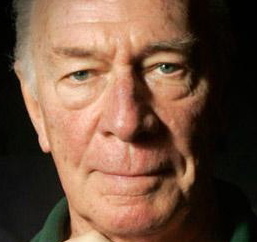 Plummer: There is an Everyman in Hamlet. And every member of the audience must, whether they like it or not, try to identify with him in this sense. And there is the chance in that extraordinary role of them being able to do that. Then there’s the remoter side of Hamlet, which is the urbane and the wit and the wisdom in one so young. And the style that perhaps takes him away from being identified, but particularly with modern audiences, who probably don’t know what style is. So it is such a melange of extraordinary qualities, Hamlet, that it makes the greatest role ever written. There is no doubt of that. And he must have also the great temper. He must possess the great temper in order to frighten the audience. He must have all sorts of qualities all in one. Because it’s written that way. It’s written as a great symphony of a part. And unless you obey the codas, the climaxes, and the stresses, musically, you’re not anywhere near finished playing Hamlet.
Plummer: There is an Everyman in Hamlet. And every member of the audience must, whether they like it or not, try to identify with him in this sense. And there is the chance in that extraordinary role of them being able to do that. Then there’s the remoter side of Hamlet, which is the urbane and the wit and the wisdom in one so young. And the style that perhaps takes him away from being identified, but particularly with modern audiences, who probably don’t know what style is. So it is such a melange of extraordinary qualities, Hamlet, that it makes the greatest role ever written. There is no doubt of that. And he must have also the great temper. He must possess the great temper in order to frighten the audience. He must have all sorts of qualities all in one. Because it’s written that way. It’s written as a great symphony of a part. And unless you obey the codas, the climaxes, and the stresses, musically, you’re not anywhere near finished playing Hamlet.
Correspondent: Well, this is an interesting distinction. Because I also know that you took James Earl Jones to task in this book for approaching Othello with a more analytical framework.
Plummer: Yes.
Correspondent: And I’m wondering if you believe that Shakespeare needs to always have this great emotional poetry to it or whether there is room, given the complexities, for numerous types of adaptations.
Plummer: Well, of course there’s room. But you’ve got to have all of them. You can’t come on and just sort of say, “Alright, I’m going to play Hamlet as a junkie. Period.” Please! Where would he be able to think so clearly? And how could he give out such brilliant thoughts if he was a junkie? It would take him days to say one line. So, of course, James Earl Jones was fantastic in the prose section of the play. What interested me, and what disappointed me at the same time, was — with his great organ of voice, which he has to his fingertips — why he did not let go in the great poetic passages.
Correspodent: Yeah.
Plummer: He just decided not to. Whether he was embarrassed or he decided he would do them in more monotone realistic way. There was only one great moment where he let fly. It was about the Pontic sea, and that whole imagery in the famous scene with Iago. There, he let fly. And it was absolutely wonderful. And then you wanted him to go on at moments doing the same thing again.
Correspondent: So I take it then that you’re not really a fan of creative interpretations like, say, the R & J or the Baz Luhrmann approach to….
Plummer: Oh, I thought that as a contemporary Romeo & Juliet, it was [the Luhrmann] by far the best I’d ever seen. I thought it was excellent. And I didn’t think that the poetry was mangled. Because I think that somebody helped — obviously, I don’t know if this is true, but it seemed as if someone had helped Leonardo DiCaprio with his words. Because he stretched them out correctly. So even though it was a modern piece, he obeyed the rhythm of the poetry. And I thought that the girl did too. She was a little behind him in that. But he was excellent. And I thought that was remarkable. Because that was an honest departure all the way down the line. It didn’t pretend to be half-modern, half a sort of allegiance to Shakespeare. It was a modern take on Romeo and Juliet.
BSS #253: Christopher Plummer (Download MP3)
Listen: Play in new window | Download


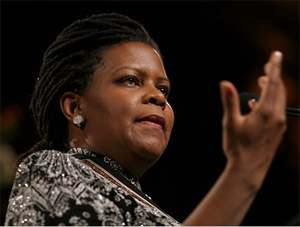 Correspondent: How are you wrestling with Whitman exactly?
Correspondent: How are you wrestling with Whitman exactly?
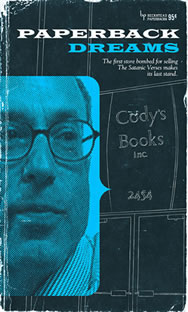 Beckstead: I didn’t smell blood in the water. I didn’t go in thinking, “Okay, well this is going to be a failure.” I mean, it was a huge risk. The kind of thing that Andy [Ross] was doing, there was going to be a dramatic outcome one way or the other. Either he wasn’t going to make it and then the losses were going to be catastrophic or he was going to make it and sort of prove that somewhere, somehow, an independent bookstore can still make it. That was the outcome I was still rooting for. But that’s not what happened.
Beckstead: I didn’t smell blood in the water. I didn’t go in thinking, “Okay, well this is going to be a failure.” I mean, it was a huge risk. The kind of thing that Andy [Ross] was doing, there was going to be a dramatic outcome one way or the other. Either he wasn’t going to make it and then the losses were going to be catastrophic or he was going to make it and sort of prove that somewhere, somehow, an independent bookstore can still make it. That was the outcome I was still rooting for. But that’s not what happened.
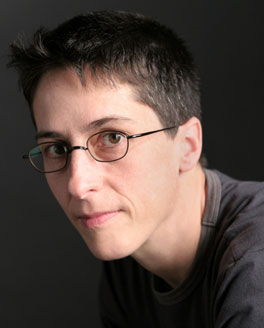 Correspondent: I think we should really clarify this for the record. I mean, the stripes on Mo’s shirt become more pronounced over the course of time. And they increasingly grew thicker during the course of the early ’90’s. And then sometime around 1995, they solidified into that absolute thickness that we have enjoyed for the last decade or so. I know there have been many Harry Potter jokes that you’ve thrown around. But you were there, of course, before Harry Potter.
Correspondent: I think we should really clarify this for the record. I mean, the stripes on Mo’s shirt become more pronounced over the course of time. And they increasingly grew thicker during the course of the early ’90’s. And then sometime around 1995, they solidified into that absolute thickness that we have enjoyed for the last decade or so. I know there have been many Harry Potter jokes that you’ve thrown around. But you were there, of course, before Harry Potter. 
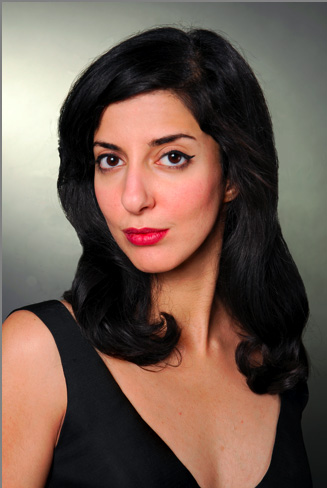 Correspondent: So you actually added 10,000 words just in the editing process?
Correspondent: So you actually added 10,000 words just in the editing process?